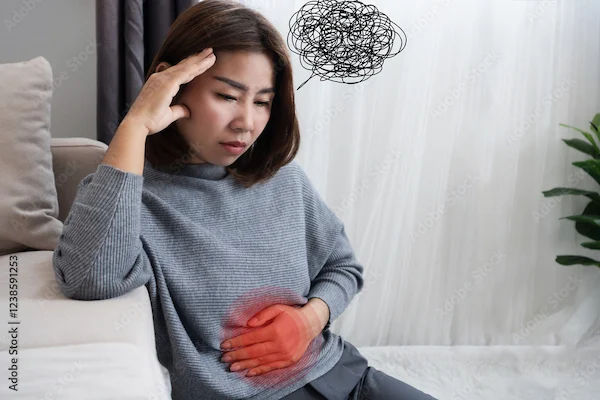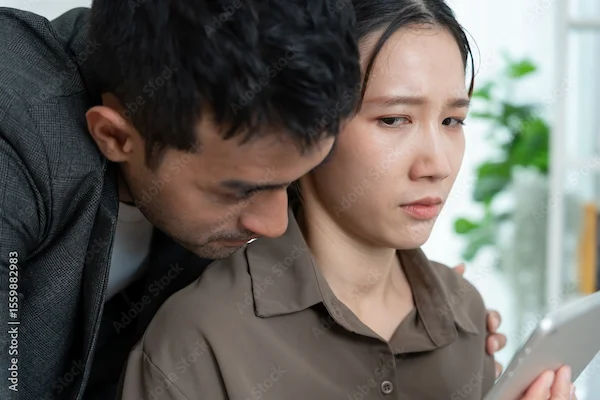Colitis Flare After Hysterectomy
Experiencing abdominal pain or diarrhoea after a hysterectomy? It could be a colitis flare. Learn why it happens and how to manage symptoms effectively for smoother recovery.

Written by Dr.Sonia Bhatt
Last updated on 9th Jul, 2025

Introduction
If you've recently had a hysterectomy and are experiencing digestive issues like abdominal pain, diarrhoea, or bloating, you might be dealing with a colitis flare-up. This can be concerning, but understanding the connection between your surgery and colitis can help you manage symptoms effectively.
What is Colitis?
Colitis refers to inflammation of the colon (large intestine). Common types include:
Ulcerative Colitis (UC) – A chronic inflammatory bowel disease (IBD) causing ulcers in the colon.
Microscopic Colitis – Inflammation visible only under a microscope.
Infectious Colitis – Caused by bacterial or viral infections.
A flare-up means symptoms suddenly worsen, leading to discomfort and disruption in daily life.
Consult Top Specialists for Personalised Health Advice
Why Does Colitis Flare After Hysterectomy?
A hysterectomy—removal of the uterus—is a major surgery that can impact your digestive system in several ways:
1. Hormonal Changes – The uterus and ovaries play a role in hormone regulation. Removal can affect estrogen levels, which may influence gut inflammation.
2. Surgical Stress – Any major surgery can trigger an immune response, worsening existing colitis.
3. Medications – Painkillers (like NSAIDs) or antibiotics given post-surgery can irritate the gut lining.
4. Altered Gut Motility – Surgery may temporarily slow digestion, leading to bloating or constipation, which can aggravate colitis.
Symptoms of a Colitis Flare
Watch out for:
Abdominal pain or cramping
Diarrhoea, sometimes with blood or mucus
Urgent bowel movements
Fatigue
Loss of appetite or weight loss
How to Manage a Colitis Flare After Hysterectomy
Here are some simple steps that may help you manage a colitis flare and support smoother recovery.
1. Dietary Adjustments
Eat Small, Frequent Meals – Easier on digestion.
Avoid Trigger Foods – Spicy, fatty, or high-fibre foods may worsen symptoms.
Stay Hydrated – Diarrhoea can lead to dehydration; drink water, herbal teas, or electrolyte solutions.
Probiotics – Yoghurt or probiotic supplements may help restore gut balance.
2. Medication & Medical Care
Consult Your Doctor – If symptoms persist, you may need anti-inflammatory medications or steroids.
Avoid NSAIDs – These can worsen colitis; opt for acetaminophen for pain relief.
Monitor Infections – Post-surgery antibiotics can disrupt gut bacteria; report prolonged diarrhoea.
3. Stress Management
Gentle Exercise – Walking or yoga can aid digestion and reduce stress.
Adequate Rest – Healing from surgery requires proper sleep.
Mindfulness Techniques – Deep breathing or meditation can help manage stress-induced flares.
4. Follow-Up Care
Keep track of symptoms and report them to your doctor.
If diarrhoea or pain is severe, seek medical attention to rule out infections or complications.
When to See a Doctor
Contact your healthcare provider if you experience:
Persistent diarrhoea or blood in stool
High fever or signs of infection
Severe abdominal pain
Unexplained weight loss
Can You Prevent Future Flares?
While not all flares can be prevented, these steps may help:
Follow a balanced, anti-inflammatory diet.
Stay hydrated and avoid alcohol/caffeine if they trigger symptoms.
Manage stress through relaxation techniques.
Keep up with regular medical check-ups.
Final Thoughts
Recovering from a hysterectomy while managing colitis can be challenging, but with the right care and lifestyle adjustments, you can reduce flare-ups and improve your quality of life. Listen to your body, follow medical advice, and take things one step at a time.
If you're struggling with colitis symptoms after a hysterectomy, don’t hesitate to seek expert advice. You can consult a gastroenterologist or book a test through Apollo 24|7 for personalised care.
Consult Top Gastroenterologists
Consult Top Specialists for Personalised Health Advice

Dr. Paramesh K N
Gastroenterology/gi Medicine Specialist
16 Years • MBBS, MS ( General Surgery), DNB ( Surgical Gastroenterology)
Hyderabad
Sprint Diagnostics Centre, Hyderabad

Dr Harish K C
Gastroenterology/gi Medicine Specialist
15 Years • MBBS MD DM MRCP(UK) (SCE-Gastroenterology and Hepatology)
Bangalore
Manipal Hospital, Bangalore

Dr Rohit Sureka
Gastroenterology/gi Medicine Specialist
19 Years • MBBS, DNB General Medicine, DNB Gastroenterology
Jaipur
Triveni Gastro Care, Jaipur
Dr. Vijay Rai
Gastroenterology/gi Medicine Specialist
19 Years • MBBS,MD General Medicine,MD GASTROENTOLOGY
Kolkata
Livgastro, Kolkata

Dr. Gorantla Sarath Chandra
Gastroenterology/gi Medicine Specialist
15 Years • MD, DM (Gastro)
Hyderabad
Star Hospital, Financial District, Hyderabad
(225+ Patients)
Consult Top Gastroenterologists

Dr. Paramesh K N
Gastroenterology/gi Medicine Specialist
16 Years • MBBS, MS ( General Surgery), DNB ( Surgical Gastroenterology)
Hyderabad
Sprint Diagnostics Centre, Hyderabad

Dr Harish K C
Gastroenterology/gi Medicine Specialist
15 Years • MBBS MD DM MRCP(UK) (SCE-Gastroenterology and Hepatology)
Bangalore
Manipal Hospital, Bangalore

Dr Rohit Sureka
Gastroenterology/gi Medicine Specialist
19 Years • MBBS, DNB General Medicine, DNB Gastroenterology
Jaipur
Triveni Gastro Care, Jaipur
Dr. Vijay Rai
Gastroenterology/gi Medicine Specialist
19 Years • MBBS,MD General Medicine,MD GASTROENTOLOGY
Kolkata
Livgastro, Kolkata

Dr. Gorantla Sarath Chandra
Gastroenterology/gi Medicine Specialist
15 Years • MD, DM (Gastro)
Hyderabad
Star Hospital, Financial District, Hyderabad
(225+ Patients)




